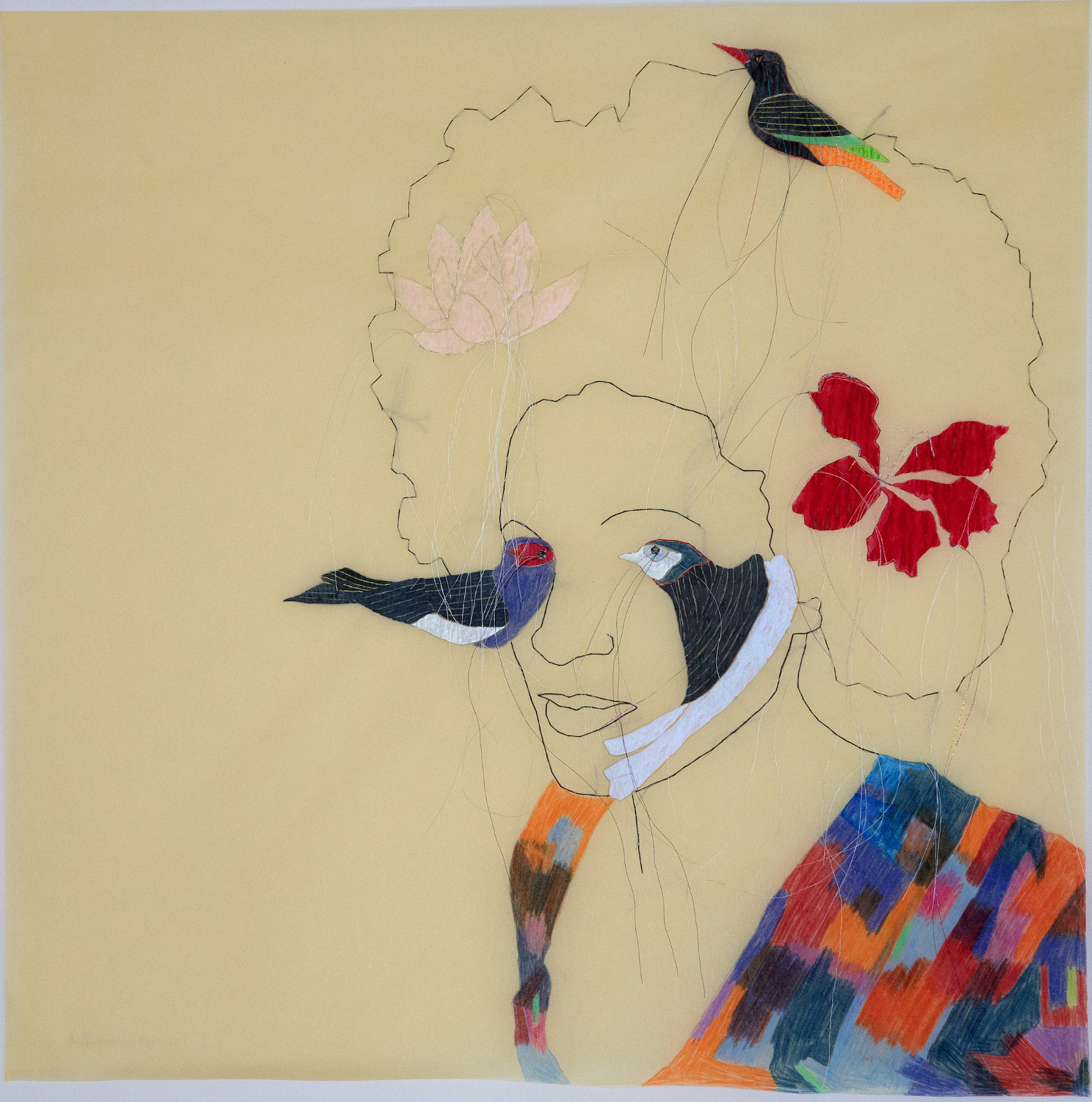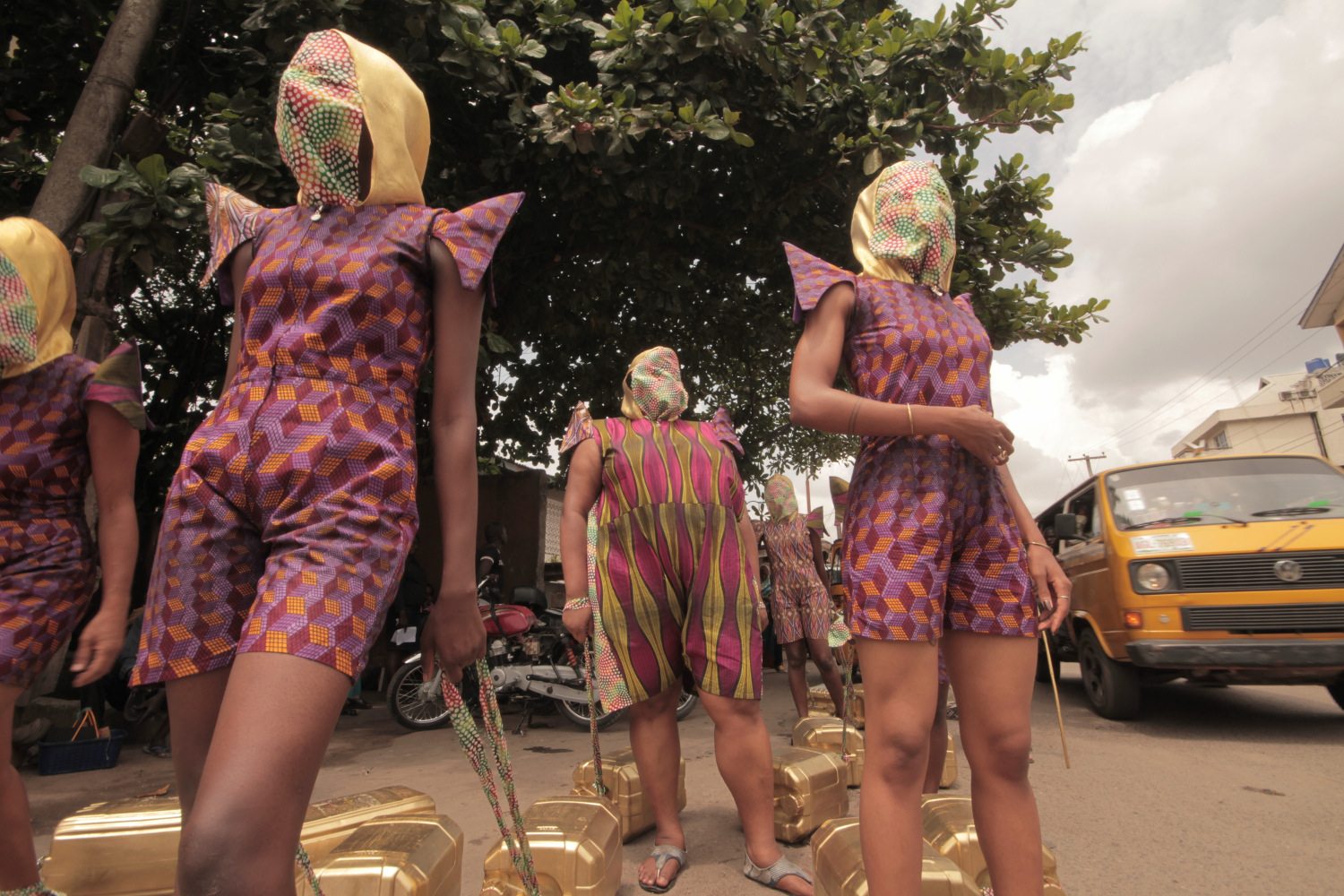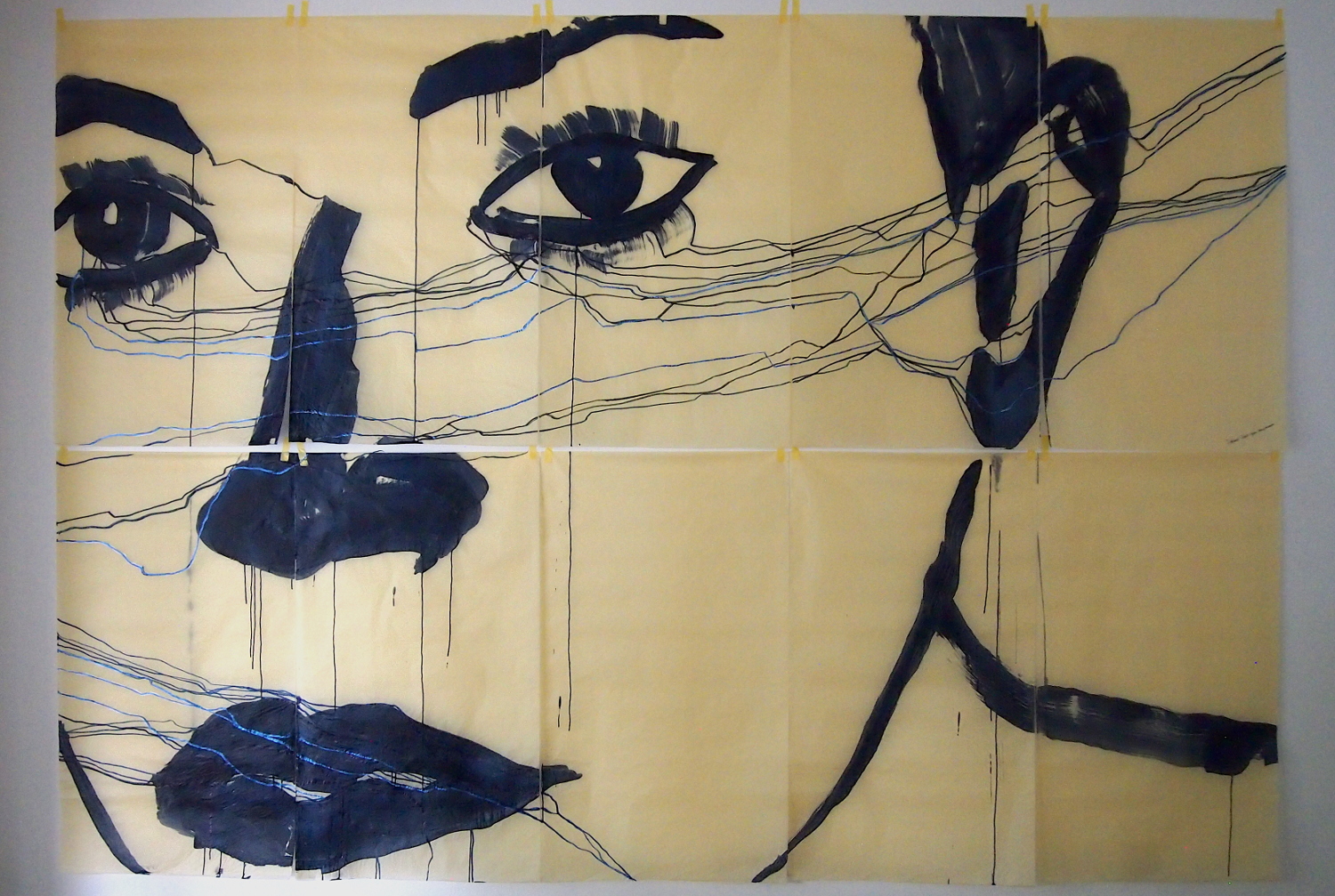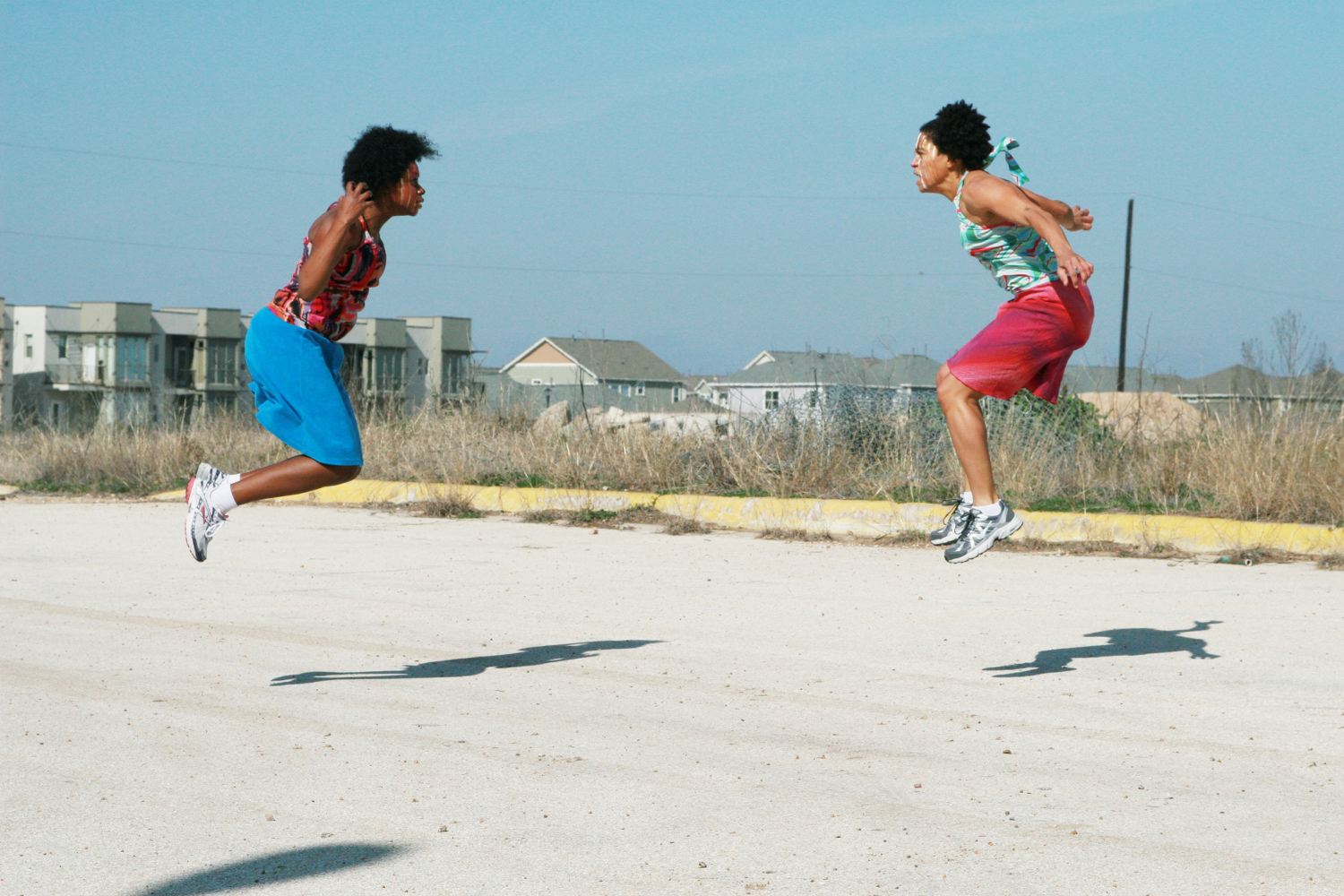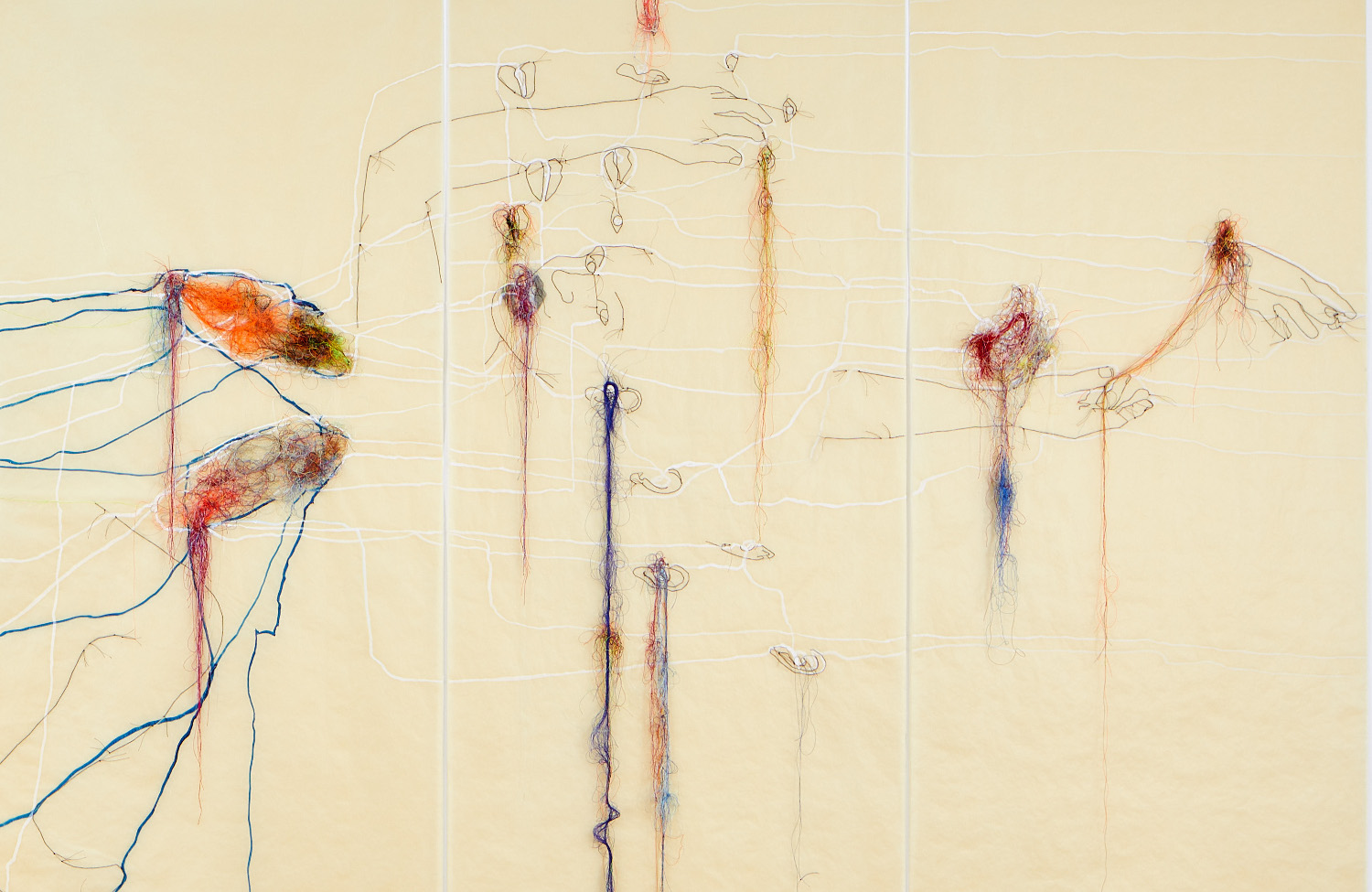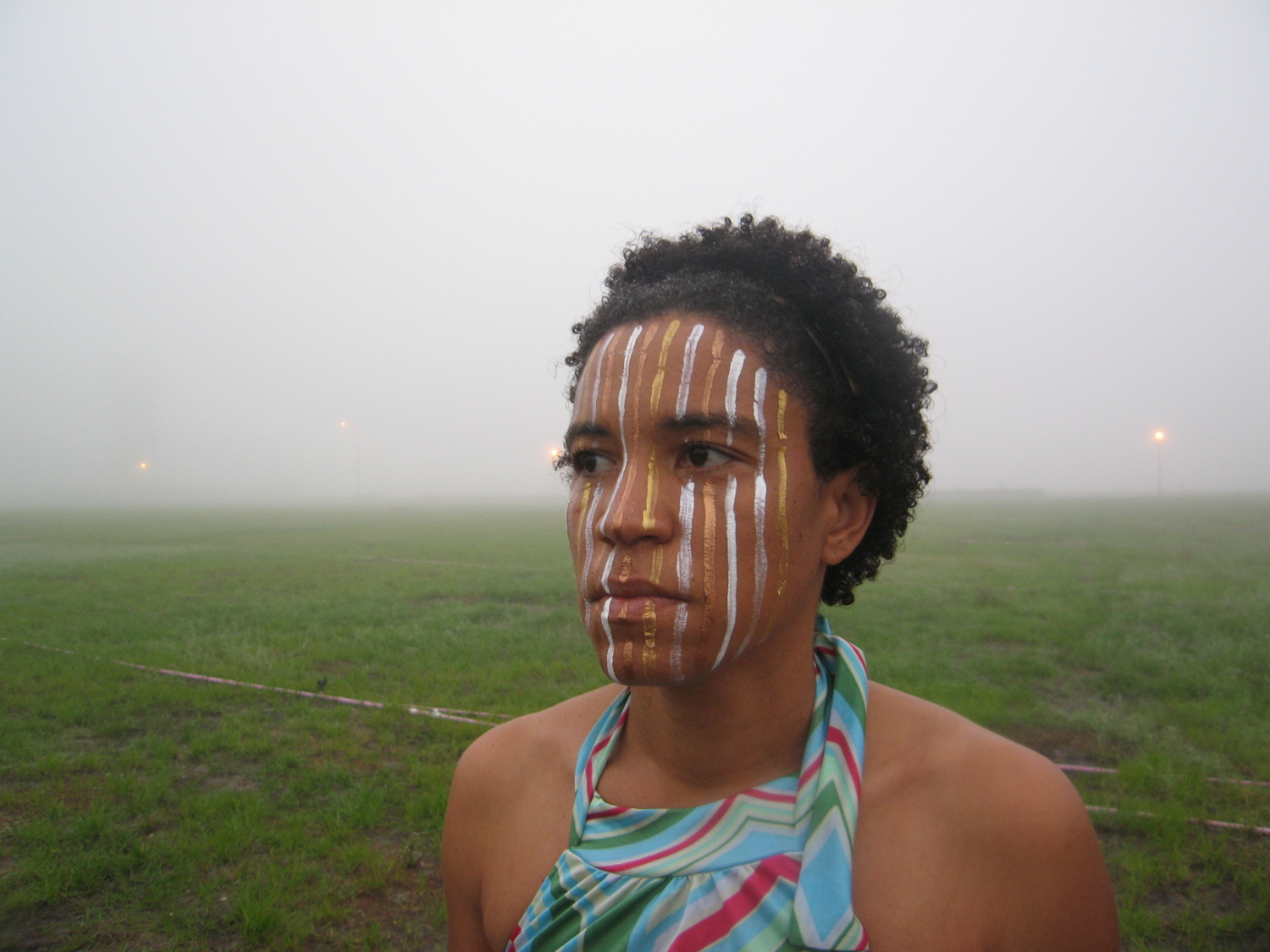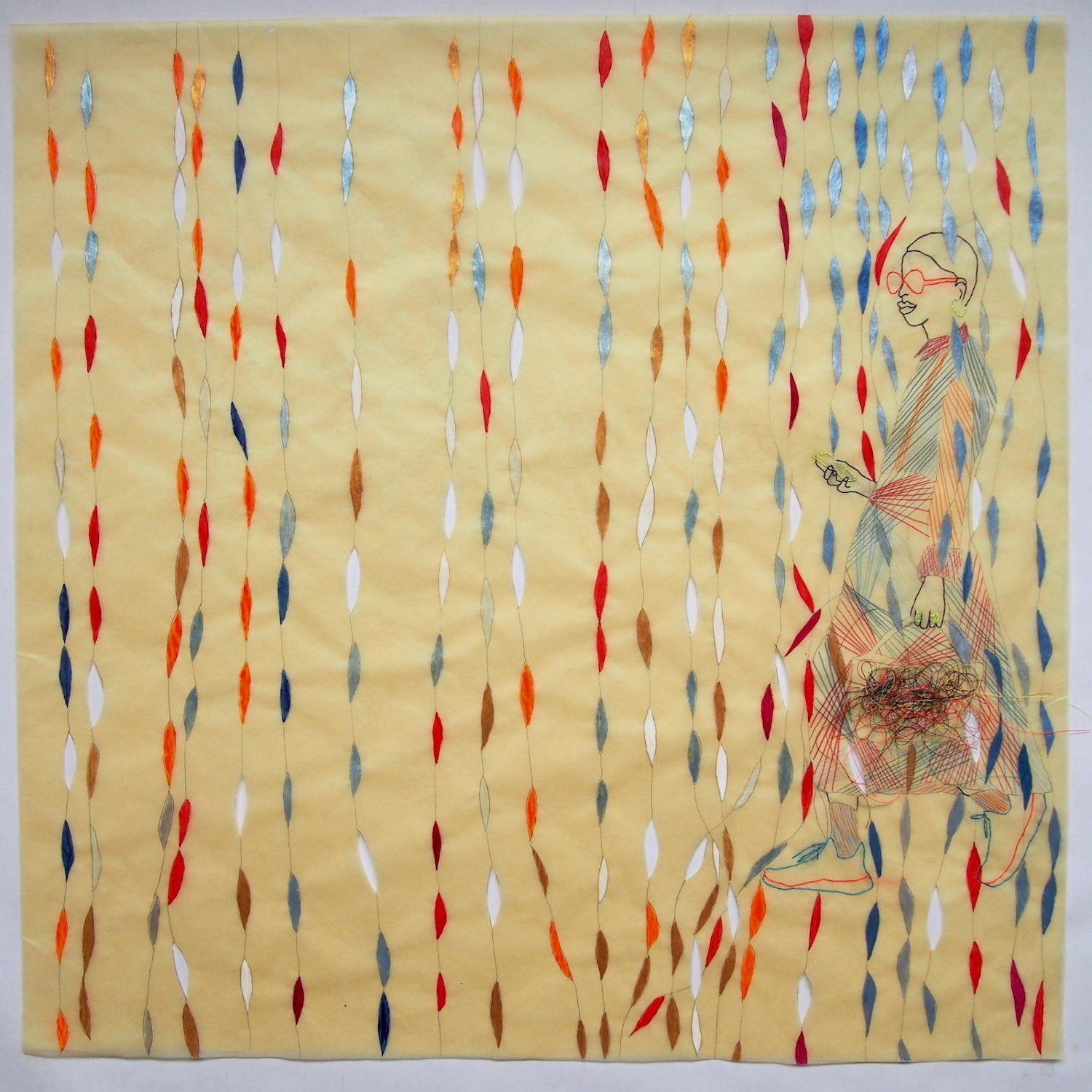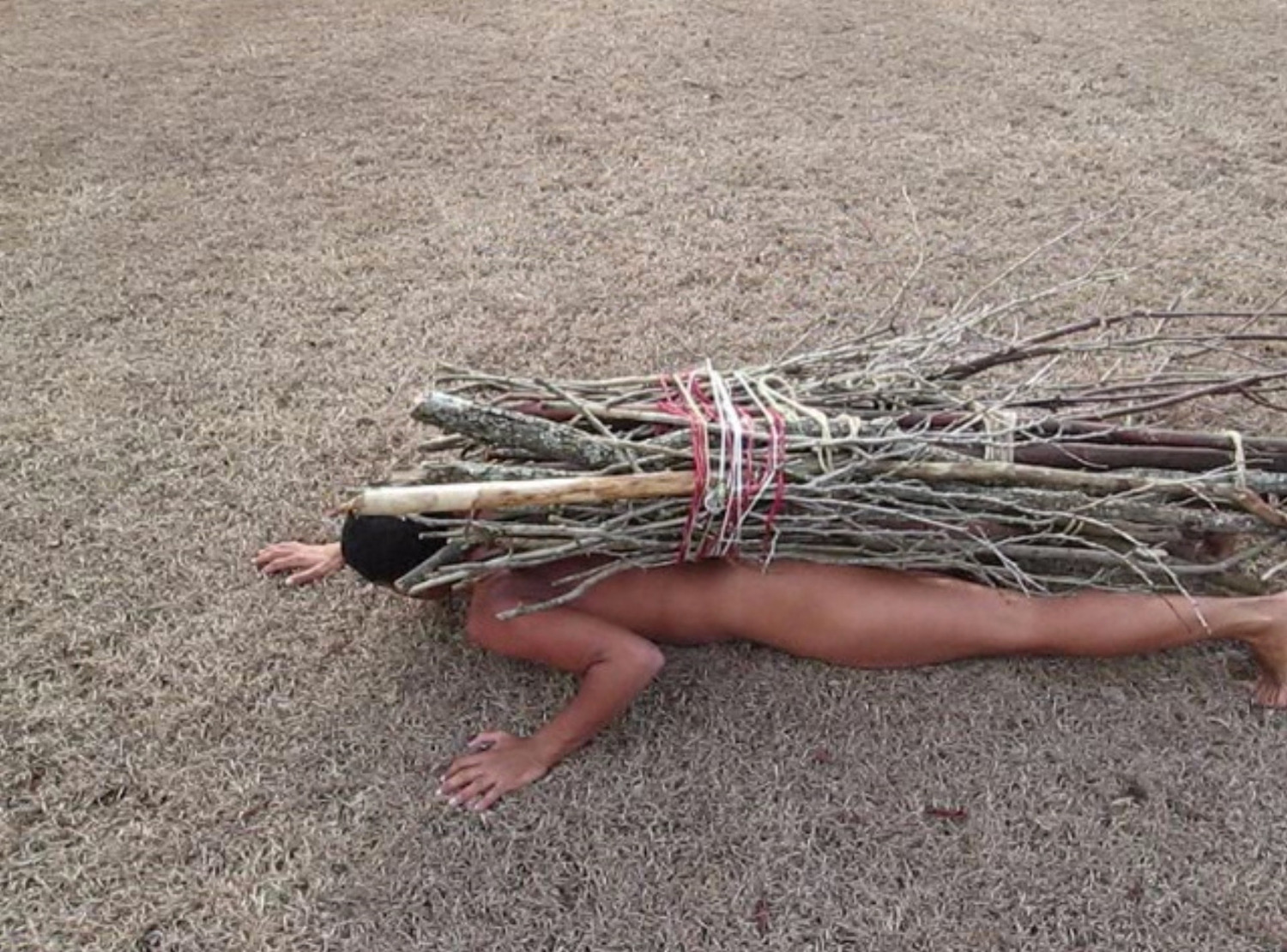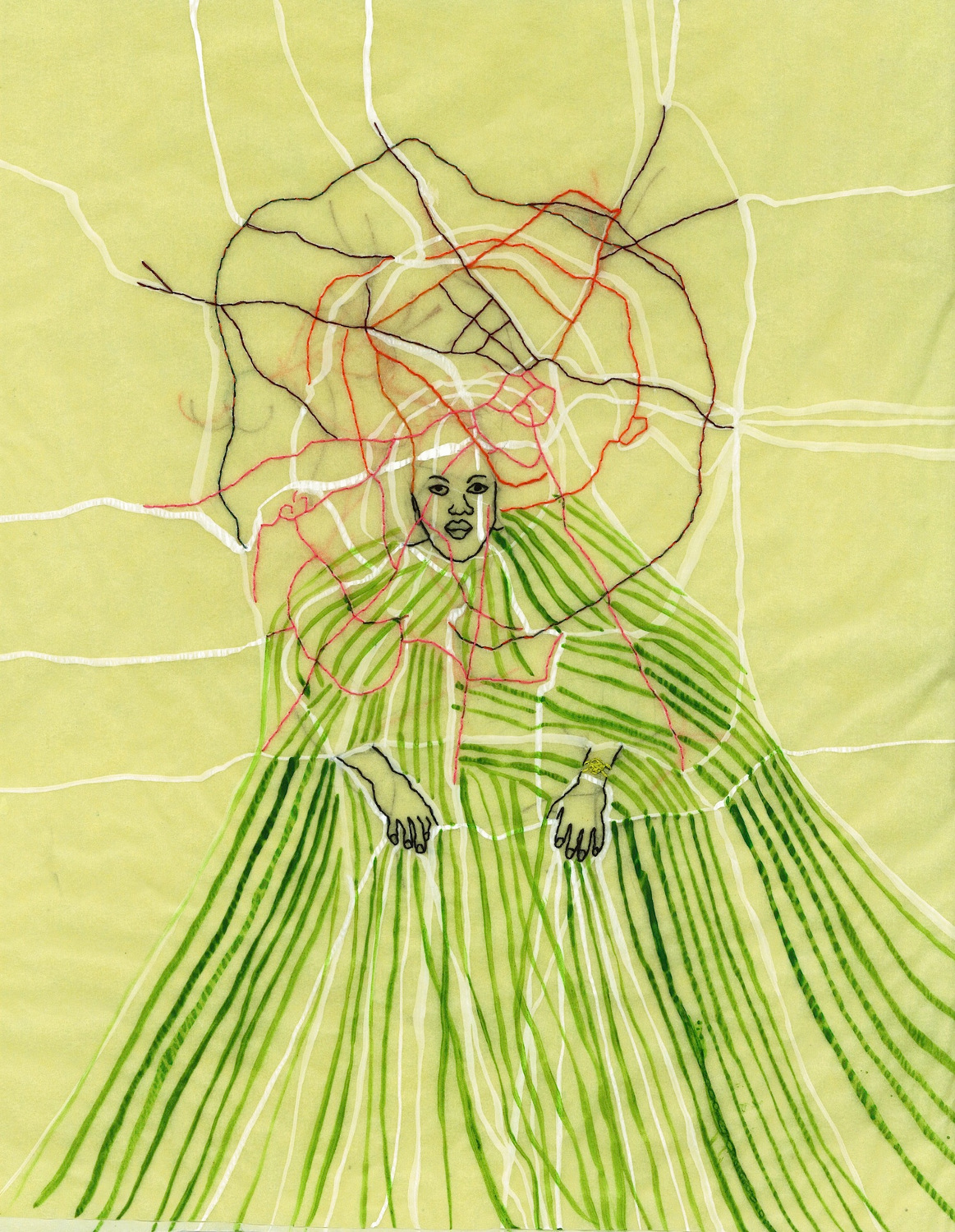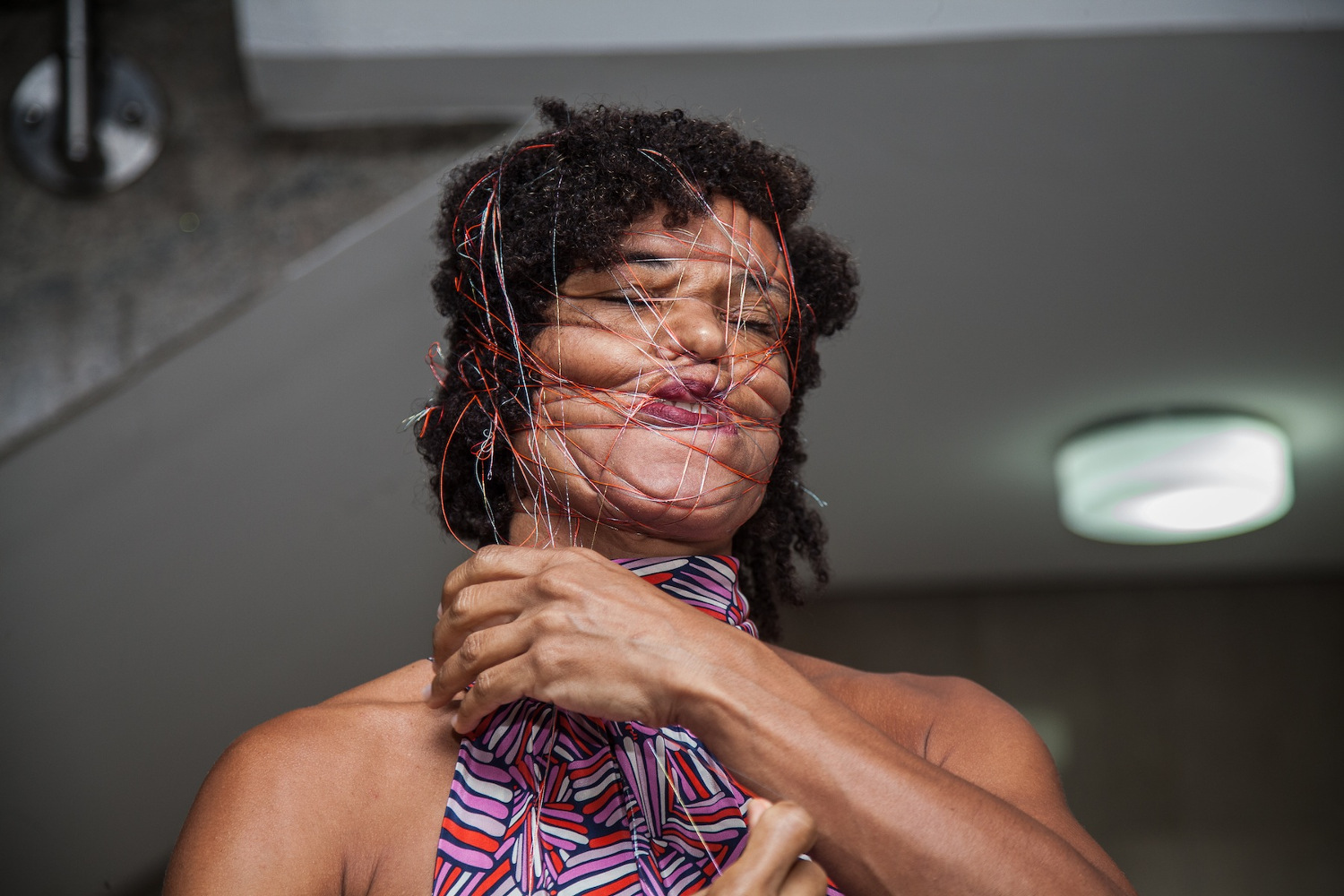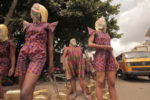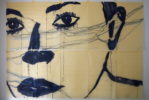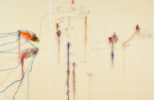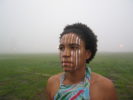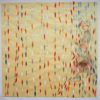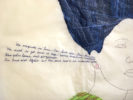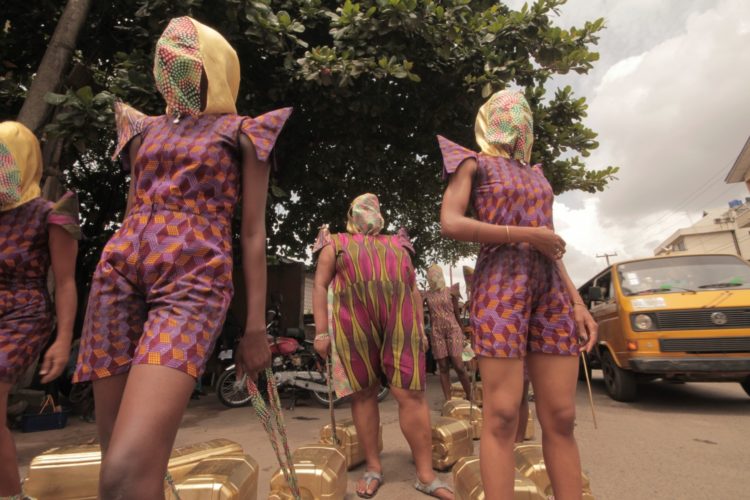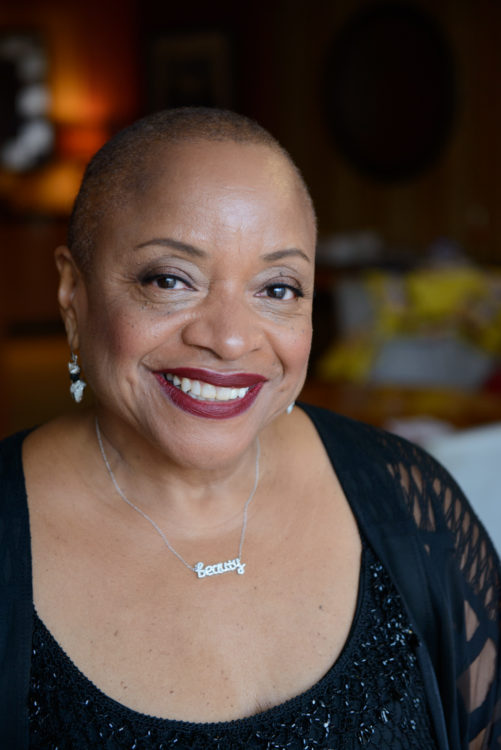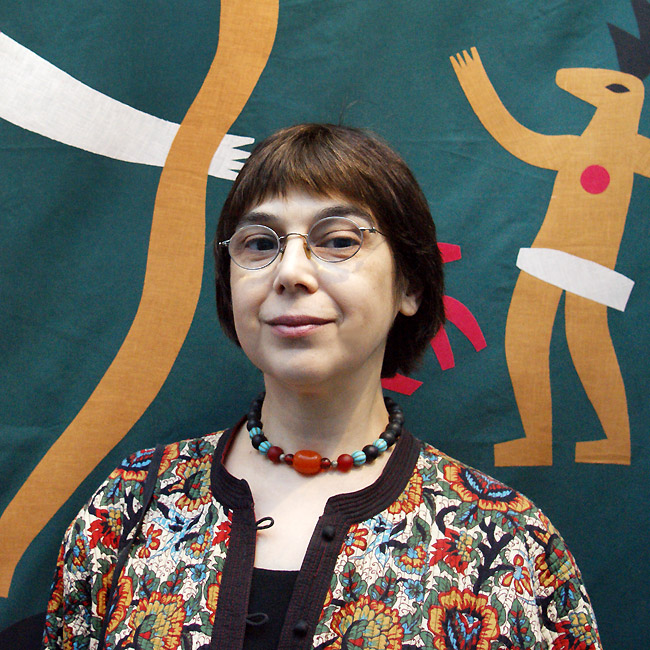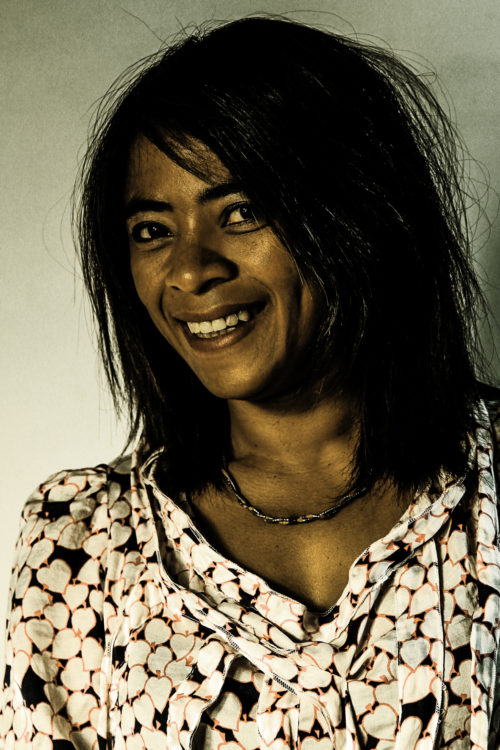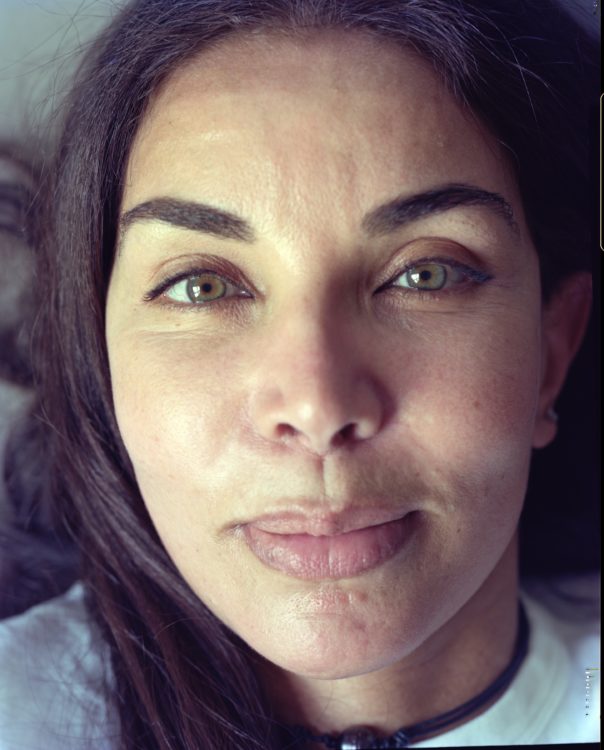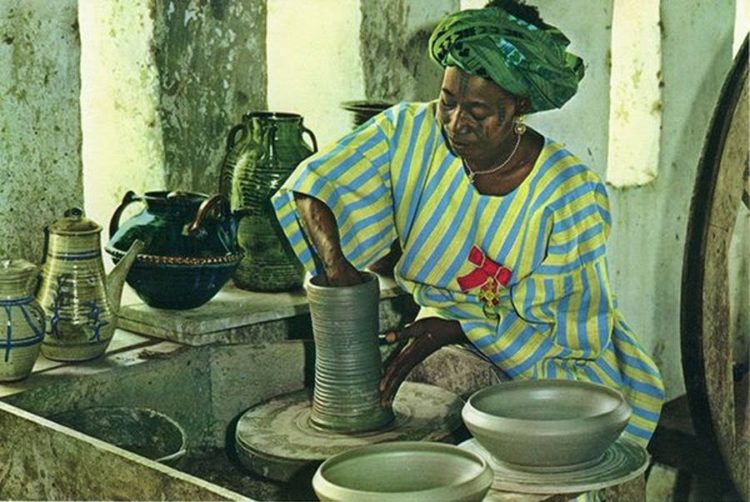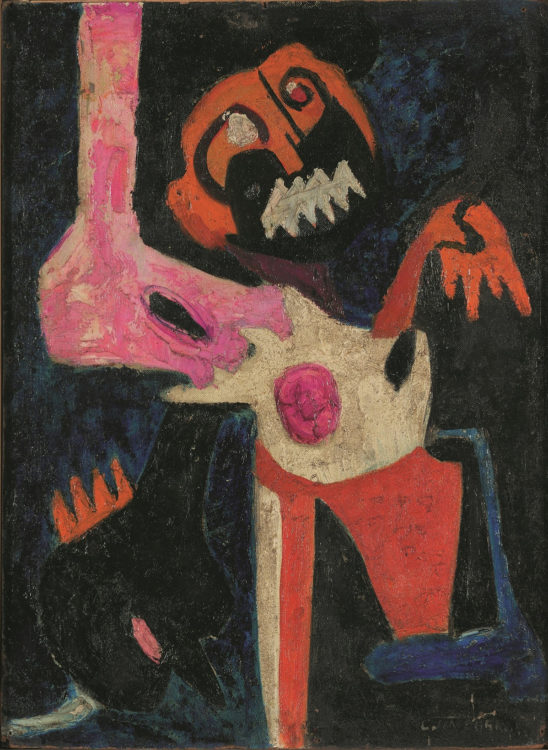Wura-Natasha Ogunji
Iduma Emmanuelle, You are So Loved and Lovely – Wura-Natasha Ogunji, ruby onyinyechi amanze, exh. cat., Friedman Gallery, New York, 2019
→Van Dyke Kristina & Silva Silva, The Progress of Love, exh. cat., Yale University Press, New Haven, 2013
A Slice through the World: Contemporary Artists Drawings, MAO (Museum of Modern Art Oxford), Oxford, 2018
American-Nigerian visual artist and performer.
Wura-Natasha Ogunji was born in the United States and is of Nigerian descent on her paternal side. For many years she divided her time between Austin, Texas, and Lagos, Nigeria. She eventually settled in Lagos, where she opened The Treehouse, an independent exhibition space in the Ikoyi district, in 2018. W.-N. Ogunji describes her practice as being deeply influenced by her life experience, first between two countries, then in her father’s native country. About her pieceOyibo vs Herself (That’s not the Atlantic; There’s a Disco Ball between Us.) (2013), she explains that her aim was to “consider both the geographic and psychic distance between Africa and the Americas in order to speak about the possibilities that this immense Atlantic separation might allow”. W.-N. Ogunji graduated with degrees in anthropology in 1992 and photography in 1998. Early on in her career, her main form of expression was drawing, after which she expanded her work to video and performance – three mediums in which she regularly uses her own body as a subject. She also develops original techniques of embroidery on paper, to which she adds pearlescent coloured inks and layers of tracing paper, which cover the motif with a translucent sheen. She also works with fabric and designs installations. Her work was quick to draw inspiration from the interactions she experienced during her stays in Lagos, a city of which she says: “I often wonder if what makes this place a megacity isn’t the exponential spreading out of people, but rather the endless stretching and expansion of time. We are always late but arrive when expected. We insist on crafting new things in old ways. The village endures in the city.” Through her practice, W.-N. Ogunji also strives to consistently examine the presence of women in the public space through their actions, both in the United States and in Nigeria, particularly in regards to the duality of their activities, whether domestic or in their leisure time.
Her work, which always pays attention to the body and its every movement, showcases the artist’s interest in physicality, endurance and body language, as well as in the way bodies are allowed or required to inhabit their geographic and architectural surroundings. Most of her performance pieces, which include Queens (2013) and Beauty (2016), highlight the relationship between bodies and the physical embodiment, whether in cities or in nature, of abstract entities such as power and society. Led by her curiosity for a Nigerian society “that reveres its elders and many aspects of its tradition”, yet is also part of “a nation that has little interest in preserving history, be that personal family documents, national artefacts or historical sites”, the artist creates visual expressions of these apparent contradictions. An example of this is the Ife Head – a sculpture probably made in the 11th century and unearthed with several other objects in 1938 in Ife, Nigeria, the religious and former royal centre of the Yoruba people – which can be found in many of her pieces. According to the artist, she uses this image “to reaffirm the idea that history is always present and that we can also be our own monuments”. A performance like Sweep (created in 2011) is also typical of various aspects of her research. W.-N. Ogunji originally performed it during her first visit to Nigeria: in doing so, she says that she wanted “the land to remember [her] presence”. She has since performed Sweep in various contexts and several countries, as a way of furthering her reflection both on the place of women in different societies and on the notions of homeland and diasporic identity.
W.-N. Ogunji’s work is often collaborative and marked by her commitment to fellow women artists, whether as part of The Treehouse’s activities or in the construction of her performance pieces, or when she assumed both the role of artist and curator for the 33rd São Paulo Biennale in 2018.
Publication made in the framework of the Season Africa2020.
© Archives of Women Artists, Research and Exhibitions



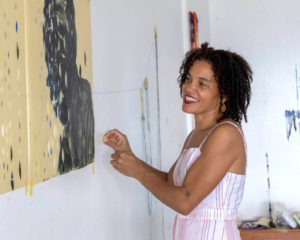
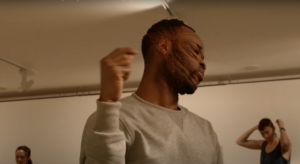 Performance "If I loved you"
Performance "If I loved you" 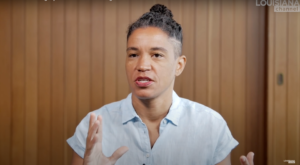 Interview of Wura Natasha Ogunji
Interview of Wura Natasha Ogunji 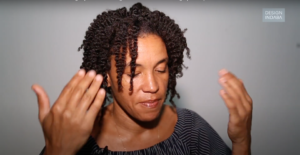 Interview of Wura-Natasha Ogunji on reclaiming the female voice through public performance
Interview of Wura-Natasha Ogunji on reclaiming the female voice through public performance 